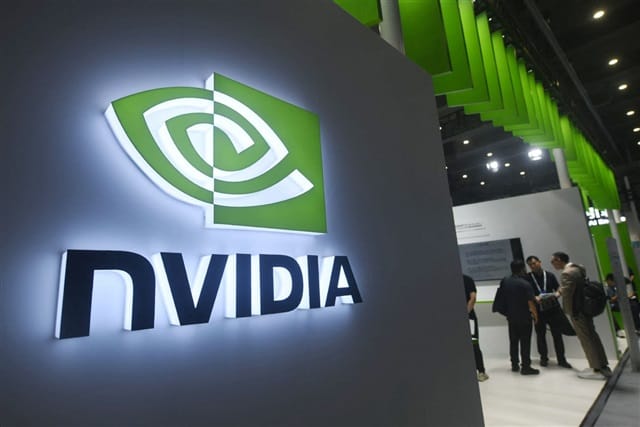China Launches Antitrust Probe into Nvidia Amid Growing US-China Chip Tensions
China has initiated an antitrust investigation into Nvidia, escalating tensions in the ongoing US-China tech battle. The probe is seen as a retaliation for the US’s semiconductor restrictions on China, putting Nvidia’s business in the spotlight.

China Investigates Nvidia Over Antitrust Violations Amid US Tech Tensions
In a significant move that further intensifies the ongoing US-China technology rivalry, China has launched an antitrust investigation into Nvidia, the American chip giant known for its leadership in artificial intelligence and gaming chips. This development marks a new chapter in the trade war between the two superpowers, with the probe widely seen as Beijing’s response to the US’s latest semiconductor restrictions on Chinese companies.
What’s Behind the Nvidia Antitrust Probe?
On December 9, 2024, China’s State Administration for Market Regulation (SAMR) issued a statement revealing the investigation into Nvidia’s business practices. While details remain scarce, the probe is focused on potential violations of China’s anti-monopoly laws. Specifically, the investigation includes concerns related to Nvidia’s acquisition of Israeli chip designer Mellanox Technologies, which was approved under certain conditions in 2020. Nvidia is alleged to have possibly violated these commitments.
The probe comes at a time when the global semiconductor industry is feeling the pressure of rising geopolitical tensions, with both China and the US taking actions aimed at securing their positions in the critical technology sector.
A Retaliatory Move in the US-China Chip Conflict
The timing of China’s investigation is seen as a direct reaction to the US’s latest crackdown on China’s semiconductor industry. Last week, the Biden administration imposed fresh restrictions on exports to over 140 Chinese companies, including major players in the chip-making sector. This move further limits China’s access to critical technologies, which has sparked anger and retaliatory actions from Beijing.
Following the US sanctions, China imposed a ban on key mineral exports to the US, including gallium, germanium, and antimony, which are crucial for semiconductor manufacturing.
Impact on Nvidia’s Business
Nvidia, which has long dominated the Chinese AI chip market, has already been affected by US export bans. In 2022, the US restricted the sale of its A100 and H100 AI chips to China, forcing Nvidia to develop modified versions of these chips specifically for the Chinese market. Despite these modifications, additional US sanctions in October 2023 limited Nvidia’s ability to sell even these new versions.
Before the restrictions, China accounted for approximately 26% of Nvidia’s global revenue. However, that share has now dropped to around 17%. Despite this, Nvidia remains a dominant player in the AI chip market, holding more than 90% of the market share in China, although competition from domestic players like Huawei is increasing.
What Does This Mean for the Future of Nvidia?
The Chinese government’s move to investigate Nvidia comes at a time when the company faces growing challenges from US restrictions, competition in the Chinese market, and increasing scrutiny from regulatory authorities around the world. While analysts like Bob O'Donnell from TECHnalysis Research believe the investigation will not have an immediate impact on Nvidia’s business, the broader implications of these geopolitical and economic tensions are undeniable.
In particular, Nvidia’s ability to access the Chinese market and maintain its stronghold on AI chip sales is under serious threat as the US-China chip war intensifies.
A Growing Trend of Antitrust Investigations in China
This is not the first time China has launched an antitrust investigation into a major foreign technology company. In 2013, the Chinese government investigated Qualcomm for overcharging and abusing its dominant position in the wireless communication standards market. The company ultimately paid a hefty $975 million fine, setting a precedent for large fines against foreign tech firms.
If Nvidia faces similar penalties, it could signal further tightening of regulatory controls on foreign tech companies operating in China, especially in the wake of increased US sanctions and growing concerns over national security.
What’s Next for Nvidia and the US-China Tech Conflict?
As the US-China tech war shows no signs of abating, Nvidia and other companies in the semiconductor sector will continue to be caught in the crossfire. The investigation into Nvidia adds another layer of complexity to the ongoing battle for global technology supremacy. Nvidia, for its part, has expressed confidence in its ability to work with regulators and adhere to local laws, but the road ahead remains uncertain as both countries move to secure their tech interests.
In the face of these tensions, Nvidia’s strategic decisions, including its approach to the Chinese market and its future product development, will be crucial in determining how well it can weather the storm of US-China trade disputes.
